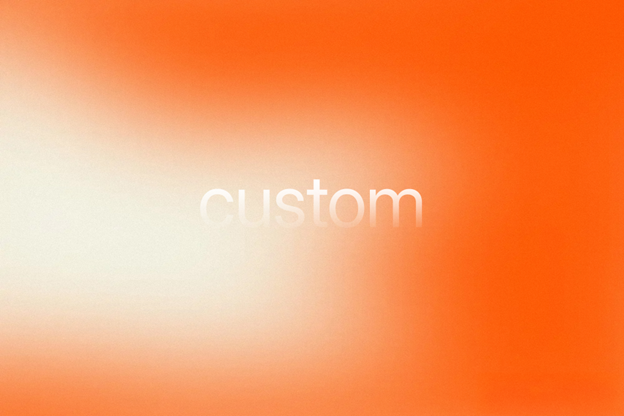Is a Custom CMS Worth It? Key Advantages Explained

Ever notice how your phone has 20 apps, but you really use, like, five?
Websites work the same way. Most platforms give you way too much fluff. That’s where the whole custom CMS question comes in.
Do you stick with the quick setup—or do you build something that actually fits how your team works?
This blog is your little flashlight for that decision. We’ll talk freedom, flexibility, and where the hidden headaches are.
Think of it like choosing the right shoes: comfy for now, but also strong enough for the long walk ahead.
Grab your coffee. Let’s figure out your path.
What is a Custom CMS?
So, what’s a custom CMS really? At its core, a custom CMS definition is simple: it’s a content management system built just for your business. Think of it like a bespoke content management system for businesses—crafted to fit your exact workflows, content types, and user needs. No unnecessary features, no generic templates, just what you actually need.
When you weigh tailored CMS vs off-the-shelf platforms, the difference becomes clear. Options like WordPress or Shopify are quick to set up but can feel rigid. A custom CMS grows with you, adapts to your processes, and gives you control over everything—from publishing to backend workflows.
If your website feels cramped, slow, or out-of-step with your goals, it might be the right time to think about custom development. The path forward? Building a system that actually works for you, not the other way around.
Customization and Flexibility
When it comes to customization and flexibility, a custom CMS really shines. The bespoke CMS flexibility means you can shape every corner of your system to fit your business. Want content types that match your exact needs? Dashboards that show exactly what matters? Or special integrations with tools your team already loves? It’s all possible.
A fully customizable CMS for unique workflows
lets you automate repetitive tasks with smart CMS workflow automation features, so your team spends less time clicking and more time creating. No forcing your processes into someone else’s template. No plugin overload slowing things down.

With a custom solution, you get total control. You design the workflows, the interface, the features. Everything bends to how your business actually works, not the other way around.
Here, you can read more about your choices on having a unique web app.
SEO and Marketing Advantages
SEO isn’t just about keywords—it’s also about how your site is built under the hood. A custom CMS gives you real control here, too. With the right setup, you unlock CMS SEO benefits for websites that go beyond what plugins can offer. Clean code, logical site structures, and faster load times all push you higher in search results.
Then there’s content.
Structured content SEO with custom CMS
means your team can organize information in a way that search engines (and people) actually love. No messy templates. No fighting with rigid layouts. Just content that works hard for visibility.
And let’s not forget marketing. A system designed with marketing-friendly CMS features gives you flexibility for campaigns, personalized landing pages, and even omnichannel pushes. Everything plays nicely together.
If your site feels sluggish, hard to optimize, or stuck in plugin chaos, that’s your sign. It might be time to think about SEO from the ground up—with a CMS built for performance and growth.
Ownership, Integration, and Extensibility
One of the biggest perks of a custom CMS is CMS code ownership and control. You’re not stuck waiting on a vendor’s update cycle or worried about losing access if a platform changes its terms. You fully own the system, the data, and the roadmap.
Then there’s integration.
With custom CMS API integrations,
your platform can talk to anything—CRM, ERP, analytics tools, even that quirky internal system your team can’t live without. Everything connects smoothly, without duct-tape workarounds.
And here’s the kicker: an extendable CMS for future growth means you’re not boxed in. Add a mobile app, spin up a new site, or test an AI feature. Your CMS is ready to evolve with you.

If your current setup feels locked down or too rigid, that’s the signal. Time to think bigger, and actually own your platform’s future.
Security and Compliance
Security isn’t just a checklist—it’s peace of mind. With secure custom CMS development, you get protection built right into the foundation of your site, not patched on later. Because the code is unique to your business, it avoids the common plugin holes and vulnerabilities that make popular platforms easy targets.
For companies that handle sensitive data, a hack-resistant CMS for businesses means fewer sleepless nights worrying about breaches. Developers can design role-based access, encrypted storage, and audit trails tailored to how your team actually works. It’s like locking every door, not just the front one.
Then comes compliance.
A compliance-ready CMS (HIPAA/GDPR) doesn’t just tick legal boxes,
it bakes requirements into the way your system runs. Encryption, logging, data governance, all set up from the start. That’s critical if you’re in healthcare, finance, or any field where regulations matter.
If your current CMS feels like a patchwork of plugins and quick fixes, that’s a red flag. Security and compliance should be part of your foundation, not an afterthought.
Comparing to Popular CMS Platforms (WordPress, Shopify, Sanity, etc.)
Let’s be honest—platforms like WordPress, Shopify, or Sanity can be great starting points. They’re quick, affordable, and easy to spin up. But each comes with strings attached.
Take WordPress. It’s perfect if you need something live fast, but it often turns into a plugin jungle. Security patches, bloated code, and clunky updates can hold you back. That’s where a WordPress vs custom CMS comparison really highlights the difference. With custom, you only build the features you need—nothing extra to maintain.
Shopify is smooth for small e-commerce, but you’re locked into their checkout and ecosystem. Monthly fees add up, and customization hits a wall. This is the heart of the off-the-shelf vs bespoke CMS advantages conversation. Off-the-shelf gives speed, bespoke gives freedom.
Now, Sanity and other headless options bring flexibility for multi-channel content. But they’re still managed SaaS products, with usage fees and limits. When you weigh headless CMS vs custom-built solutions, custom wins for total ownership and control.
So how do you choose? WordPress for quick blogs. Shopify for starter shops. Sanity if you need structured content across channels. But if your business has unique workflows, compliance needs, or growth goals that stretch the usual templates, a custom CMS might be the smarter long-term path.
Is a Custom CMS Worth It? (Considerations and Final Verdict)
A custom CMS cost vs benefit analysis always comes down to one thing: what does your business really need? If you’re running a small blog or a simple site, ready-made platforms will get you online faster and cheaper. But when your workflows are complex, or your growth plans need flexibility, that’s when to build a custom CMS.
The pros and cons of custom CMS solutions are pretty clear. You’ll pay more upfront, and the build takes time. But you also get freedom, scalability, and security that no other option can really match.
So the verdict? Start with something simple if you’re testing ideas. But if you already see your project scaling, custom websites and CMS is worth exploring now. And if you’re wondering how to actually make that happen, that’s exactly the kind of challenge we help with at Hooman Studio.